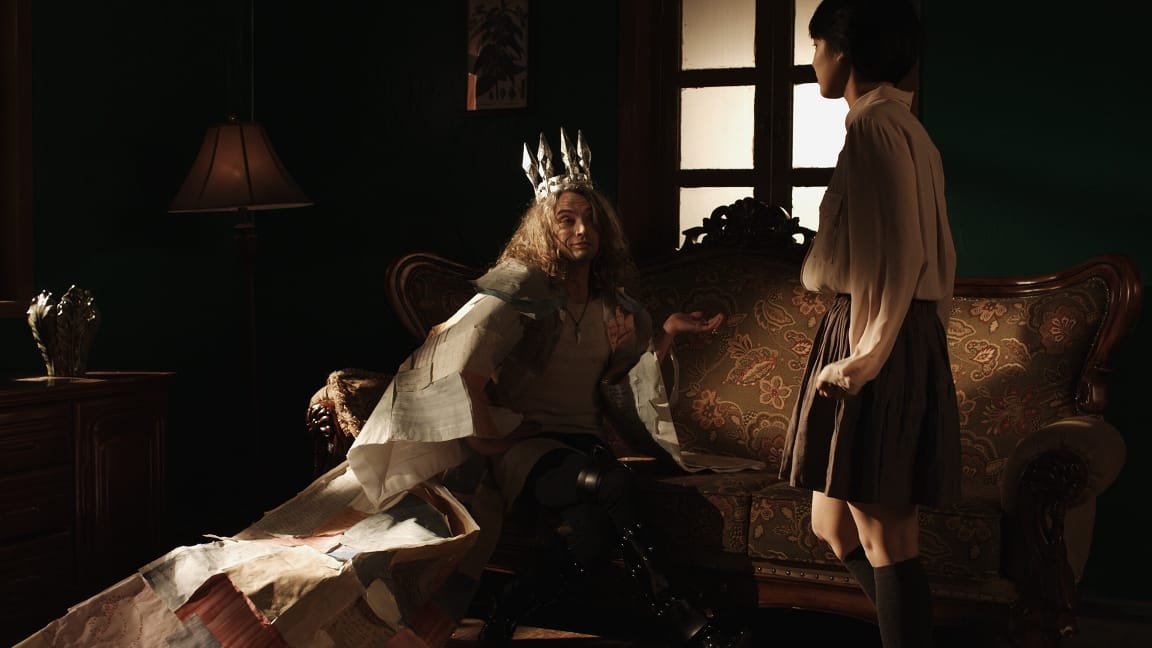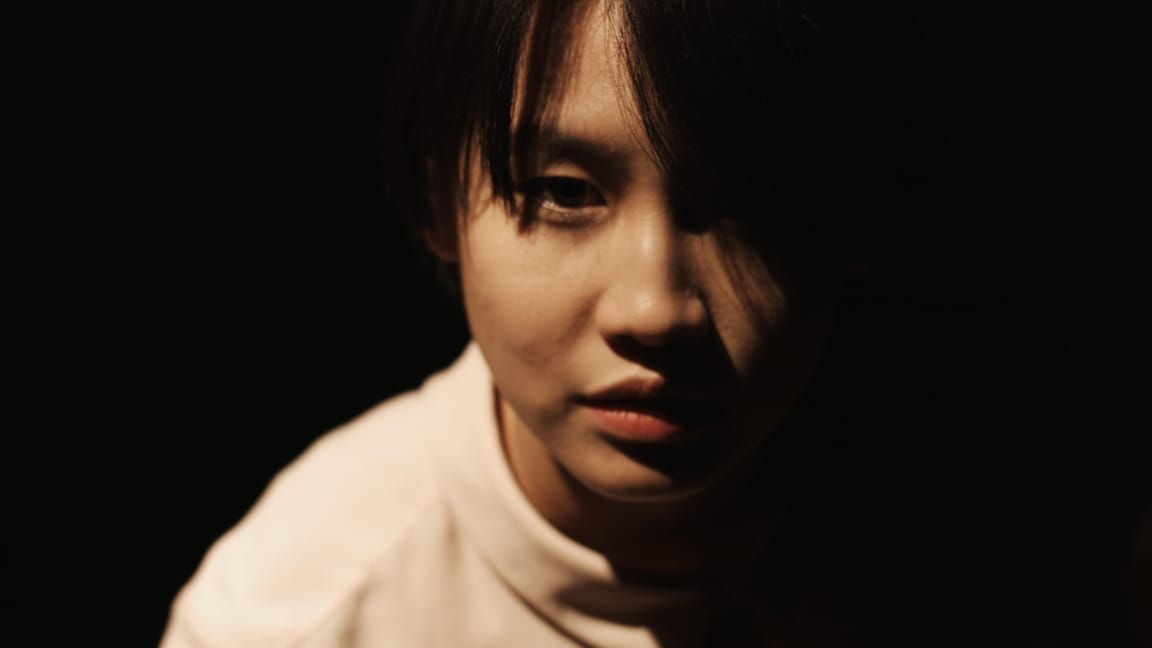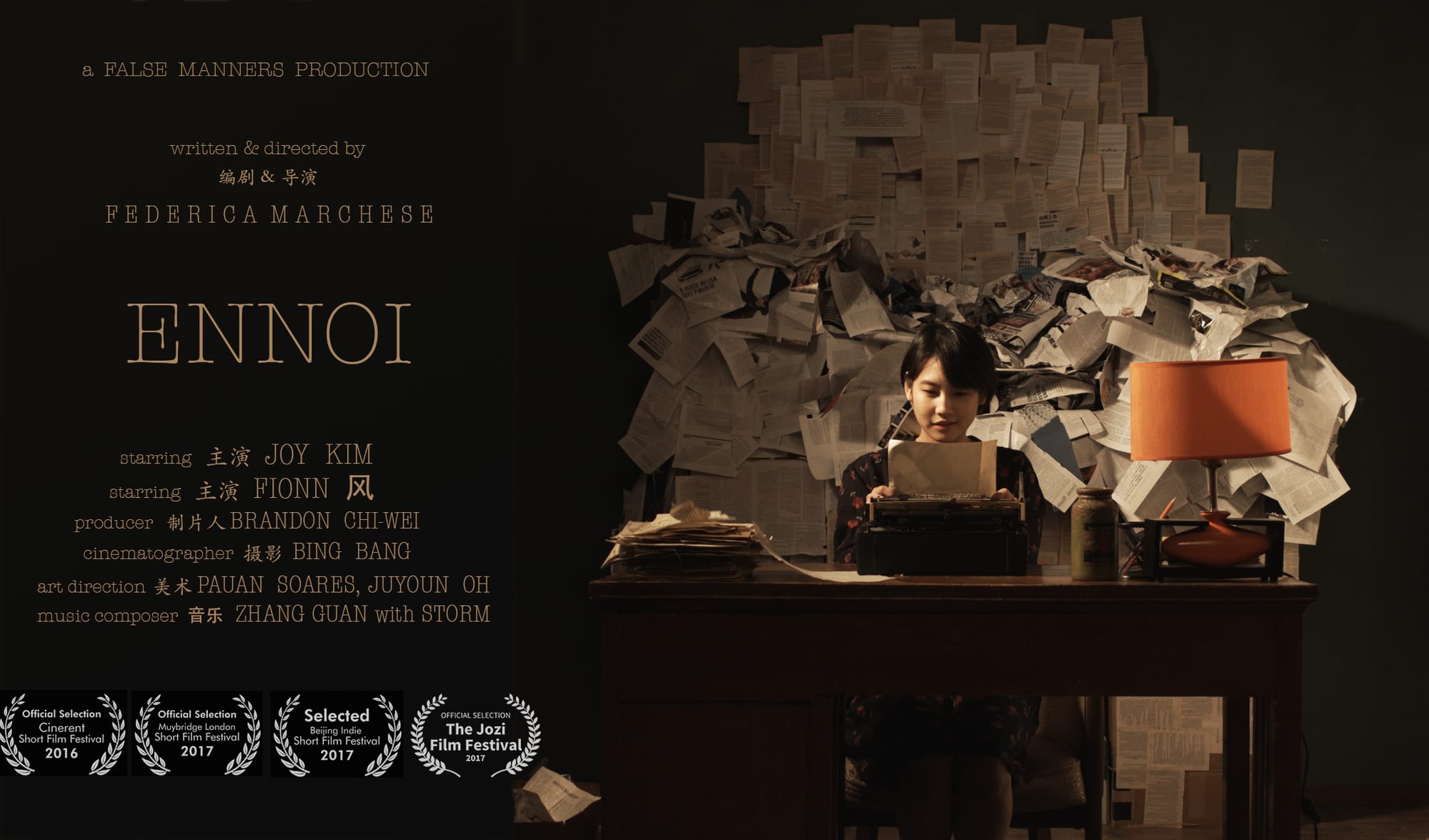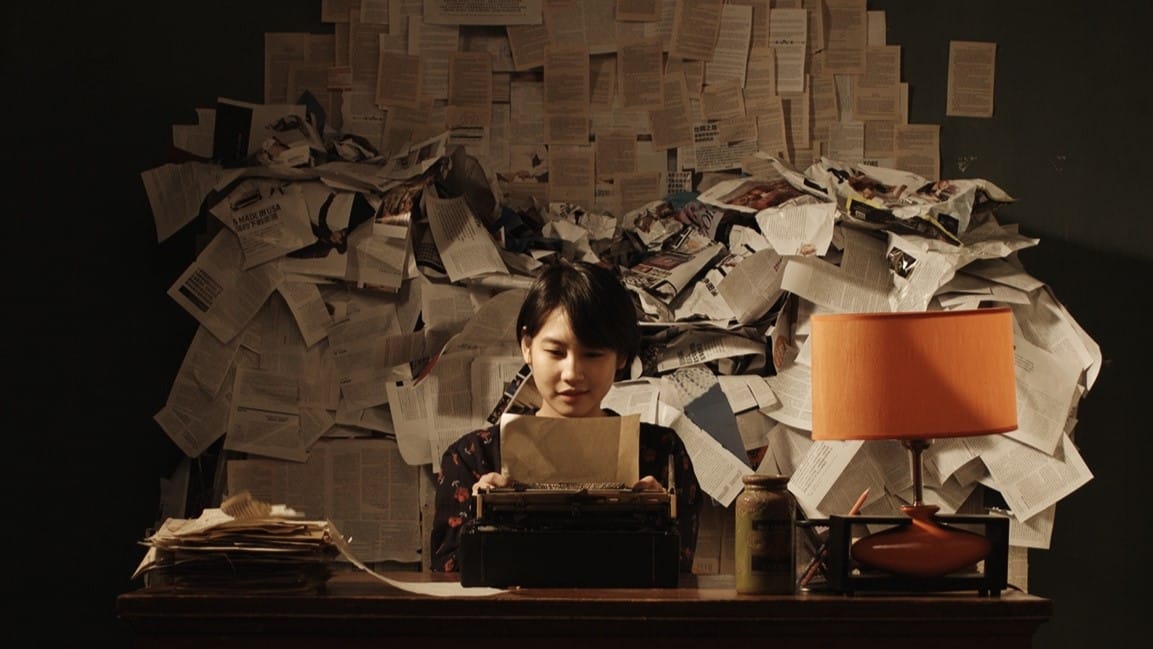A young girl in search of creativity receives a visit from the King of Ideas in the short fantasy film, Ennoi. We talk with writer-director Federica Marchese about moving to China, the struggle to find new ideas, and chasing her dream to be a filmmaker.
Ennoi tells the fantastic tale of a young girl named Ennoi (played by Joy Kim) who struggles to find new and creative ideas. Following a sleepless night in which she finally comes up with a great idea, Ennoi receives a visit from the majestic King of Ideas (played by Fionn) who may or may not have her best interests in mind.
For writer-director Federica Marchese, the film represents the struggle between youthful talent and more conservative powers in society who seek to prevent new ideas from taking hold. At the same time, the film delves into the arrogance and presumptuousness of young artists who often forget that life experience is something people gain the hard way over many, many years.
Prior to coming to China, the Italian-born Marchese was based in Berlin, where—along with Brazilian visual artist Fernanda Mattos—she co-founded False Manners Productions making videos for various electronic music labels. As an initial foray into media production, Marchese was able to use the opportunity to gain valuable hands-on experience in the processes of directing, shooting, and editing her own work.
“The first three or four years it was all great and very inspiring,” she recalls. “But, I’m a person who from time-to-time needs to add new sparkles to her routine—otherwise I won’t be satisfied.”
Marchese’s time in Germany also allowed her to experiment with different film-making techniques and push the limits of her creativity. Yet, despite giving her a solid body of work to build from, she admits her time there wasn’t really helping her reach some of the bigger objectives she had in mind.
“My life dream has always been the one of making movies and at some point I realized that the path I was following wasn’t bringing me towards that,” she explains. “I started to feel like I needed a new life challenge and to go somewhere different and unusual. I felt like changing every single aspect of my life, doing it on my own, and possibly find a way to get closer to the film-making dream.”

That need for change manifested itself in the form of a relocation to Asia and ultimately landed her at the Beijing Film Academy in September 2015. While counting the move as one of the best decisions of her life, Marchese admits it has at times been a struggle.
“Film school takes so much out of the life of a person,” she says. “You really have to be sure of what you want and why—otherwise you might lose yourself in the middle. I got this certainty only a few years ago, so, I couldn’t have done this before.”
The idea for Ennoi itself was born from an assignment Marchese and her classmates were given at BFA to create a five-to-ten-minute short with no dialogue. At the time, however, the director says she found it difficult to come up with something which fit the given restraints.
“I became a bit obsessed and angry for a couple of weeks because I wanted to do something very personal and interesting,” she confesses. “But, I felt like there was nothing good enough coming out of my mind.”
“Communicating my vision to everyone and seeing their trust and understanding was good a tool for getting new suggestions.”
Ironically, Marchese’s struggle with creative writer’s block ultimately led her to the very breakthrough she needed in order to envision the story for the film.
“One night, full of frustration that I couldn’t come up with any ideas, I had a vision in my mind of empty drawers opening one after another and growing into a spiral. That same night I dreamt about a King of Ideas, a big man covered in paper, knocking at my door and demanding my idea. I woke up and wrote Ennoi.”
Shot over a three-day period following Chinese New Year 2016 at the studios at BFA, the project also served as a valuable learning experience for Marchese—especially when it came to working with the film’s cast and crew.
“It was the first time in my life I had the opportunity to work as a director with a fifteen-person crew following my instructions,” she says. “Communicating my vision to everyone and seeing their trust and understanding was good a tool for getting new suggestions.”

Driven by the desire to perfect her on-screen vision, Marchese took nearly a year to finalize the film—editing and re-editing it multiple times—until she was happy with the results. Along the way, she notes the entire process had a deep personal effect on her.
“Showing myself I could direct a film entirely with my imagination and gain the trust of so many people was very rewarding,” Marchese asserts. “My self-confidence grew a lot and this has also affected and enhanced my creativity for the next projects I’m involved in.”
Since its completion, Ennoi has screened at festivals in Beijing, London, and South Africa, as well as other film events around Asia. As Marchese states, it has proven to be been both a valuable addition to her portfolio and has given her the confidence to step up into roles on even bigger projects.
“I keep sending the film to possible interesting festivals and film showcases,” she says. “Every time it gets screened I receive very good feedback from people—and new working possibilities—so it’s a good business card.”
Furthermore, Marchese adds that she hopes audiences will take something special away from watching the film and, more importantly, pay close attention to its meaning.
“I really hope that people catch the message behind the film about how power—even a small amount—can negatively influence a person and cause them to lose their mind.”
“I love the emotional experience that the audience usually takes away from watching Ennoi,” she says. “But, I really hope that people catch the message behind the film about how power—even a small amount—can negatively influence a person and cause them to lose their mind.”
With Ennoi now behind her, Marchese has already turned her attention to her next project which she plans to shoot early next year. She is also working hard to pursue a film-making career in China and hopes to help bridge further ties between those in the Chinese film community and elsewhere.
“I certainly want to continue staying here at least for other two or three years,” she affirms. “After that, perhaps I’ll change my base, but I still want to keep working between China and other countries—wherever I will be. I’m very open to the world, so, let’s see.”
Ultimately, Marchese expresses a positive outlook towards the future of movie-making in China and she stresses the need for greater international collaboration to help Chinese-made films move beyond the festival niche and generate wider interested from global audiences.
“If our generation of international filmmakers in China finds a way to create more co-operations with our own countries, the West will get even more interested in Chinese films,” she concludes. “So, it’s important that our talent is recognized in order to melt our visions with the Chinese one and create something outstanding that will be remembered as part of film history.”




